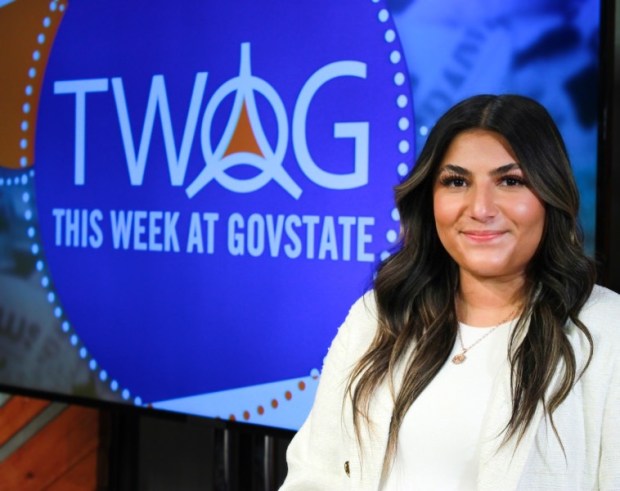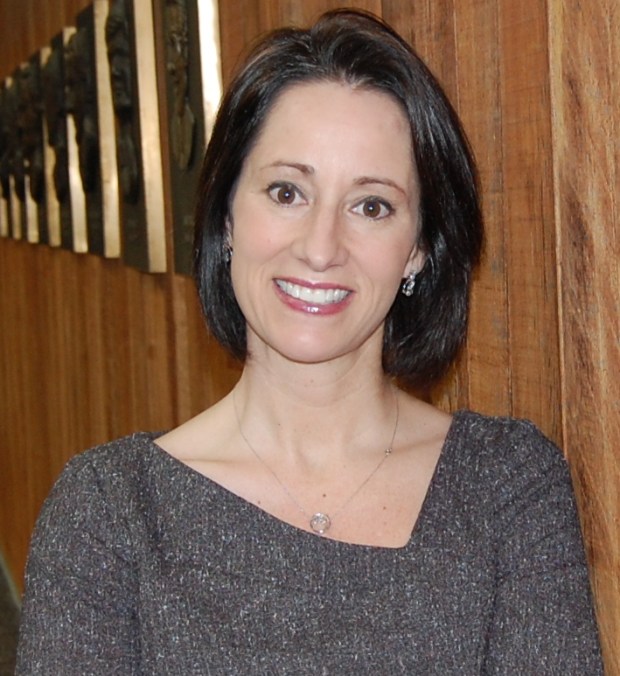The job market for graduating college seniors appears less bright than it did in the fall. One potential recession is increased competition and the effect of artificial intelligence are weighing on the minds of job seekers.
But the class of 2025 can improve its prospects by focusing on articulating skill sets to employers and being flexible, say career services professionals and employment market researchers.
The National Association of Colleges and Employers annual Job Outlook 2025 survey released in November showed employers planned to hire 7.3% more graduates from the class of 2025 than they did from the class of 2024. But the spring update revealed employers now expect to increase hires by just 0.6%.
That said, most industries are hiring. But because the market is tightening, there will be more competition for jobs, association President and CEO Shawn VanDerziel said in a statement.
The spring survey shows 64.6% of respondents plan to keep hiring levels the same as last year, up from 57.1% in the fall. The percent planning to increase hiring slid to 24.6% from 27%. But fewer employers plan to decrease hiring — 10.9%, down from 15.9%.
“While the job market for the class of 2025 is growing only slightly, graduates who are agile, skills focused, and proactive in building professional networks can still come out ahead,” said Darcie Campos, executive director of career services at University Park-based Governors State University.
Campos has observed more apprehension among graduating seniors as they pursue their job searches, compared to last year.
“There’s that economic uncertainty about a potential recession and the impact that it could have on employment,” she said. “Graduates are thinking more about AI. They are perceiving that as a potential threat to positions down the line. Between that and student debt and trying to figure out how they’re going to pay for student loans, I think there’s a little bit more apprehension this year.”
There were fewer employers who participated in the university’s career fair this past spring — 44 compared to 59 last spring. Student participation rose 40%, said Campos.
“Students are out there,” she said. “They are ambitious and working toward finding opportunities and doing the work that they need to do to get employment.”
The university has seen fewer government agency recruiters on campus this year and an uptick from recruiters in counseling, mental health, social work and criminal justice, Campos said.
The association survey revealed that among industries with the most employers projecting increases in hiring were social services, engineering services, food and beverage manufacturing, wholesale trade, management consulting and transportation. Among sectors with the fewest employers projecting increases were information, computer and electronics manufacturing, finance, insurance and real estate and motor vehicle manufacturing.
Employers are relying less on grade point average and more on using skills-based hiring practices to help them identify top job candidates from the class of 2025 said Mary Gatta, the national association’s director of research and public policy. It’s a continuing trend. In 2019, 73.3% of employers reported using GPA as a screen. That’s dropped to 38%. Sixty-four percent of employers report using skills-based hiring practices.
“Using GPA to screen, that has been falling,” said Gatta. “What they are saying is really important is having some work experience and industry experience, doing internships and also graduates being able to demonstrate their skills and competencies.”

Kaylie Dahms, who will graduate from Governors State this year with a degree in communications, has landed a job in Iowa as a news anchor and reporter. She said she applied to roughly 30 employers and received seven job offers. She completed an internship through the university’s department of digital learning and media design. The internship helped her “1,000%,” she said.
Gatta said a separate survey of college graduates who are early career professionals out of college one to three years found those who did some type of experiential learning, be that an internship, student employment or undergraduate research with faculty, reported faster career projection, greater career satisfaction and starting salaries $15,000 higher than students who did not do experiential learning.
Campos said competition for internships has increased.
“That’s what I’m hearing form students, with regards to applying and being vetted and trying to compete,” she said. “I don’t know if it’s an industry shift with AI reshaping some of that landscape.”
Some employers may feel they don’t need as many interns and that AI can do work interns previously did, she speculated.
Students are seeking internships in their sophomore and junior years.
“They’re not delaying,” said Campos. “The internship piece is very important, especially right now when competition is high.”
It can help set students apart, she said.
Among other advice she has for class of 2025 job seekers: diversify your job search. That includes spending time on LinkedIn, networking with faculty and advisers, alumni, current work colleagues and former supervisors who may know of a position that would be a good fit. Maximize your reach for potential opportunities.
“I can’t push that enough with our students,” said Campos, who added recognize the importance of building your own personal branding.
“It’s not just your resume, your cover letter, the way you interview,” she said. “It’s about how people experience you as a whole, your written communication, your interpersonal communication, the way you make someone feel when they’re talking with you in a one-on-one or group setting, the presence you leave on social media, on LinkedIn.”
Those factors will help others see who candidates are as professionals, she said.
She also advised students not to compare themselves to others. A lot of students get so caught up in social media, looking at what their peers, friends and colleagues are doing, but it’s important to remember everybody’s post-graduate journey and timeline is going to be different, she said. Remain focused on your own journey, she stressed.
She said it’s important to be flexible; don’t make the mistake of waiting for the perfect job. Sometimes graduates have in their minds specific positions, a specific employers.
“Recognize sometimes holding out for that dream job can lead to long periods of inaction,” Campos warned. “It’s important for all graduates to recognize the importance of starting somewhere, gaining experience wherever that might be and adjusting the course as they go.”
Looking for a job should be a full-time job, and she advises graduating seniors to take advantage of services available through the university’s Career Services office.
Anthony Strickland, who will graduate with a degree in accounting this year, credits assistance from the office with helping him land an auditing position with the state of Illinois. He said Governors State Career Services staff helped him build his resume, identify his strengths and weaknesses and prepare for interviews.
“I found it very helpful,” he Strickland. “I got directly what I needed. The mock interview set me up well and helped relieve stress.”
Francine Knowles is a freelance columnist for the Daily Southtown.




